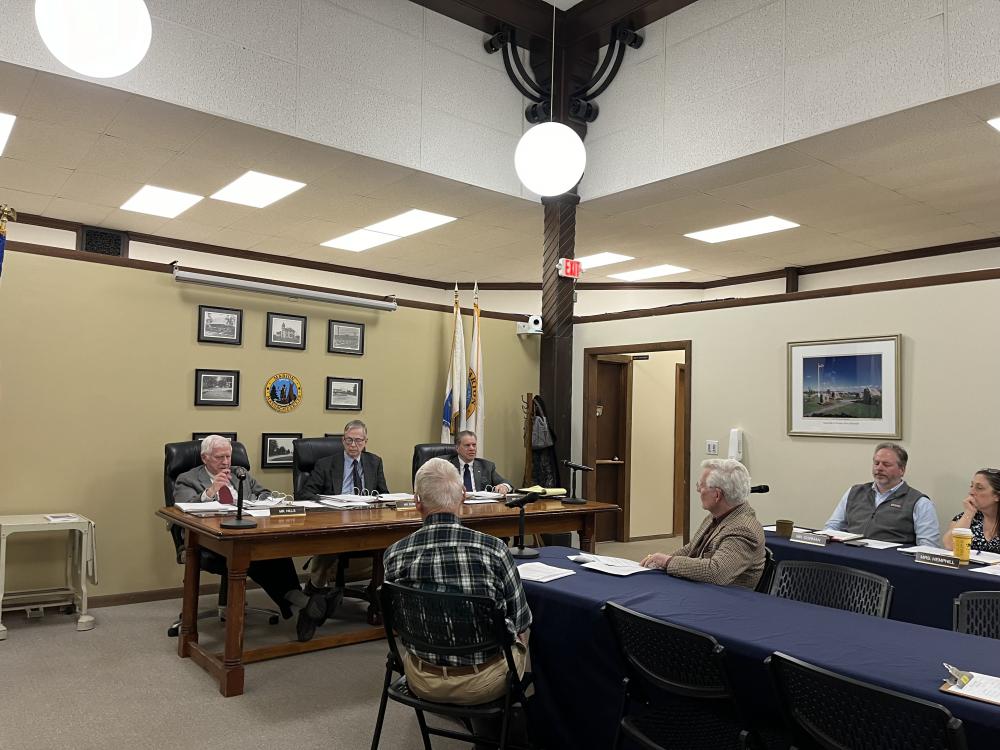Public Hearing to address Marion’s Green Community designation
MARION — Since 2019, Marion has been designated a “Green Community” by the state of Massachusetts. Now, five years later, residents will have the opportunity to weigh in on the program and could even vote to leave at Town Meeting on May 13.
A Green Community has to meet certain criteria which includes creating a plan to reduce energy use by 20% within five years and adopting a fuel efficient vehicle purchase policy.
Additionally, Green Communities must adopt the “Stretch Code,” a specialized and more strict building-energy code that “emphasizes energy performance,” according to the Massachusetts Department of Energy Resources.
In return for following these guidelines, a Green Community is eligible for state-funded grants.
Marion Building Commissioner Bob Grillo explained changes to the stretch code and Home Energy Rating System requirements to the Select Board on Tuesday, April 2.
A Home Energy Rating System rating calculates the efficiency of energy retention of a home.
The Select Board approved an article to be voted on at Town Meeting that would allow residents to decide to abolish the stretch code and leave the Green Communities Program. According to the Select Board, the article is a “placeholder” until a public hearing is held, allowing residents to voice their opinion on the matter.
A date for the public hearing has not yet been set.
According to Grillo, when the stretch code was adopted by the town in January 2019, new homes were required to have a Home Energy Rating System rating of 55. As of July 1, 2024, new homes will be required to have a rating of 42 or less.
“The energy efficiency of the windows, the amount of insulation, what kind of appliances you are using — all that gets put into a calculation and it spits out a number,” said Grillo. “The lower the number, the more energy efficient the house is.”
Grillo also said that the base code Home Energy Rating System requirement is currently at 55. This applies to communities that are not Green Communities and thus do not have to follow stretch codes.
Another change to stretch code is that along with new homes, additions or renovations to existing homes that are more than 50% of the size of the home or total 1,000 square feet will have to meet Home Energy Rating System requirements.
“It has changed, in my opinion, rather dramatically from what was originally adopted,” said Grillo. “As the building commissioner, I need to make you aware of these things when they come up.”
“With the stretch code, we adopted it, and my understanding is that we can get out of it,” Grillo said.
If the stretch code is abolished in Marion, the town would no longer be a Green Community.
Marion would not be the first town in the South Coast to leave the Green Communities Program. In 2023, Rochester was the first municipality in Massachusetts to join and then leave the program following a Town Meeting vote.
Marion resident Todd Zelle said that he built a house within the past year, and was “appalled” by the cost of insulation he needed to meet current stretch code requirements.
Bill Saltonstall, a member of Marion’s Energy Management Committee, said that 83% of Massachusetts towns and cities are Green Communities.
Saltonstall said that since becoming a Green Community, Marion has received $548,975 in state grants for different projects.
“The program has brought to light many energy deficiencies in the town’s municipal buildings and paid for corrective work that will accomplish large savings operating funds for town buildings and facilities for many years to come,” said Saltonstall.
He also added that Marion has seen a 24.66% reduction in annual town energy over the last six years, which has saved the town about $202,000 in electricity and fuel costs.
“There is no way we can seriously face the threat of climate change without requiring upgrades in the way we construct our buildings,” said Saltonstall.
Marion Select Board member Randy Parker said that the board thought the Green Communities Act was a “great idea” in 2019 when it was approved in Marionbut said that the board was told at the time that residents making additions to their homes would not be affected.
“We’ve got a different playing field here,” said Parker.














